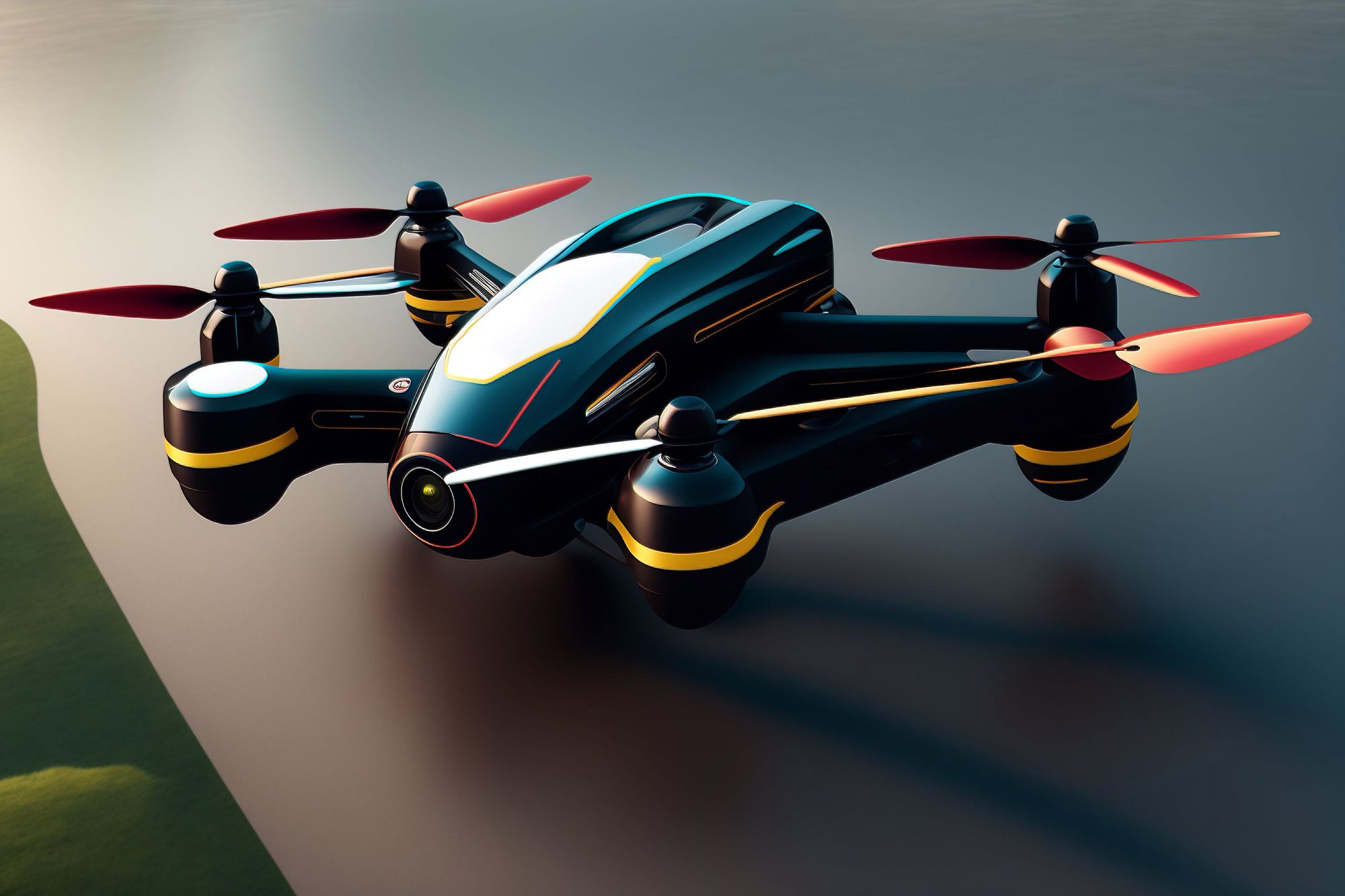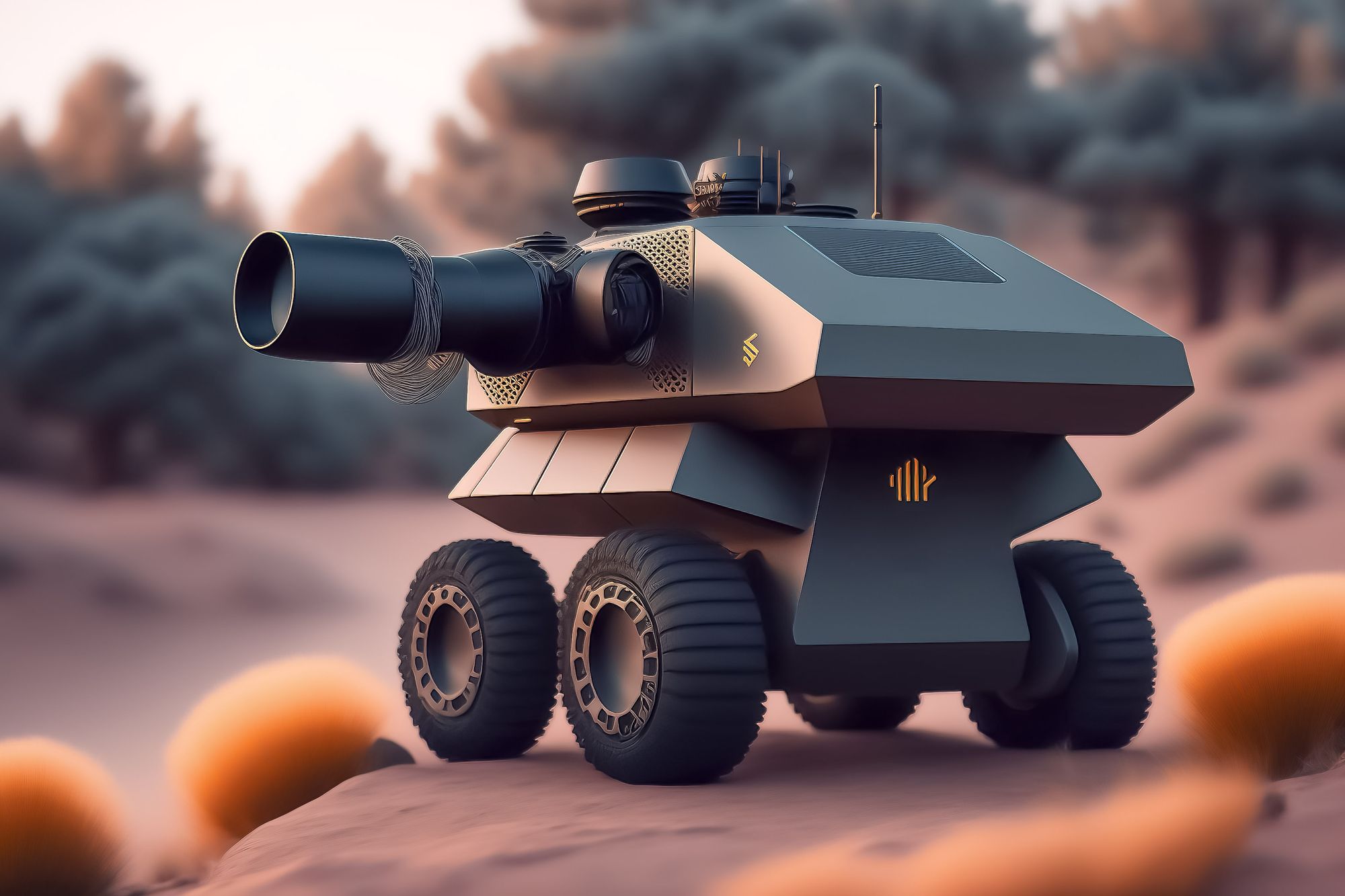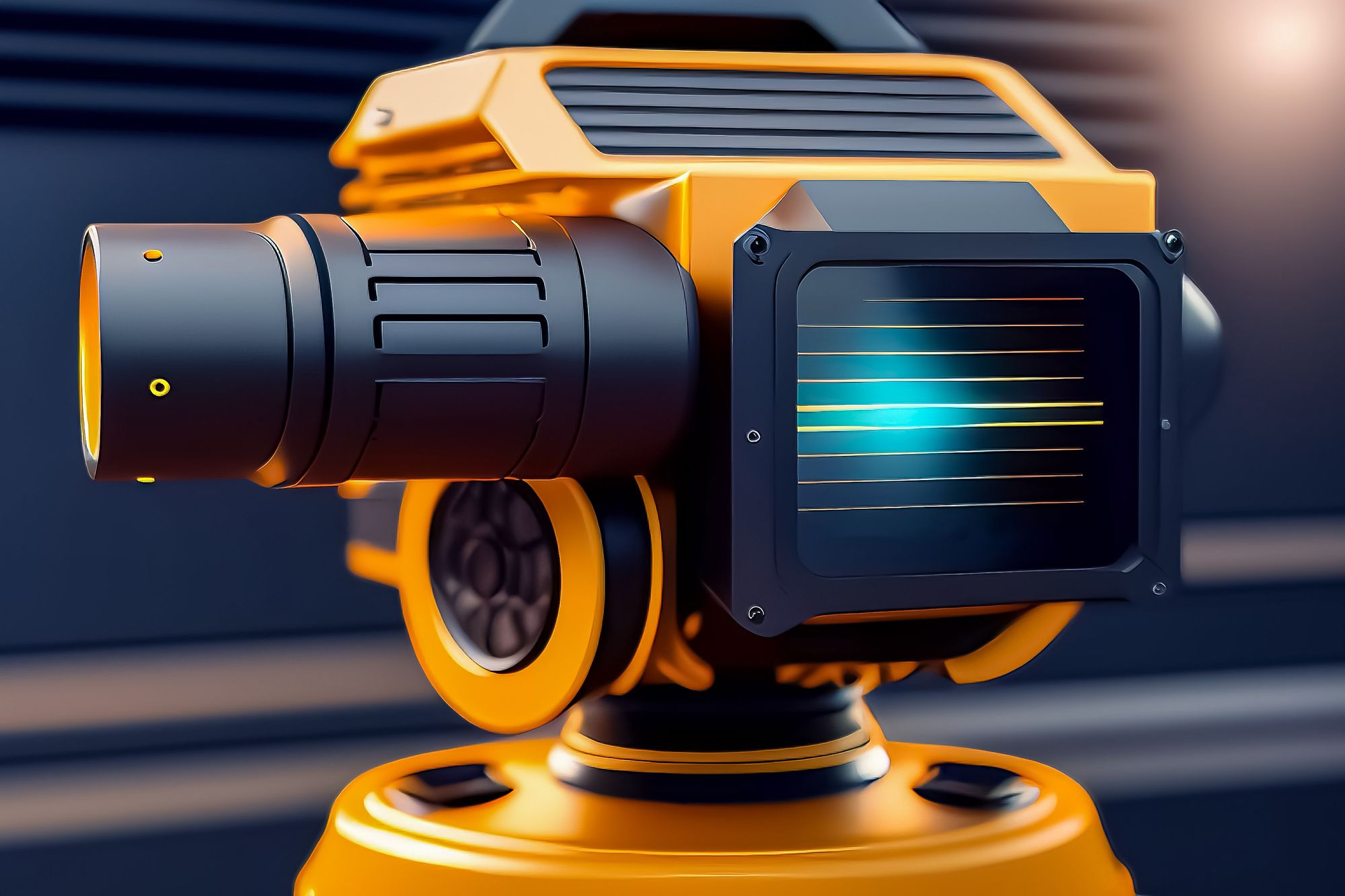The topic of autonomous weapons and the use of artificial intelligence in the warfare space has been the subject of considerable debate and discussion in recent years. The rapid advancement of innovation and technology has led to the invention of increasingly advanced and powerful weapons systems that are capable of making decisions and taking actions without human intervention. We will examine the ethical considerations that come into play when using AI in warfare, and look at the arguments for and against the use of autonomous weapons in the battlefield.
An example of an autonomous weapon or semi-autonomous weapons a modern soldier might use is a remotely operated unmanned aerial vehicle (UAV), also known as a drone. This type of weapon can be controlled from a safe distance and used for either reconnaissance or surveillance missions, as well as for delivering ordinance in the form of bombs or munitions to targets on the ground. This style of warfare has been used with extreme success in the conflict between Ukraine and Russia in 2022 and 2023, with Ukraine even publishing a manual on how to surrender to autonomous drones.
These drones can be equipped with advanced sensors and weapons systems, allowing them to carry out surveillance and strike missions with little to no human involvement. Additionally, the use of drones can reduce the risk to American soldiers, as they do not have to physically enter harm's way. Another example is an autonomous sentry gun, which can be programmed to detect and engage targets within a specific area without human intervention. These weapons offer military personnel the ability to gather intelligence and neutralize threats without putting themselves in harm's way.

Arguments Against Autonomous Weapons
Opponents of autonomous weapons believe that they pose an overwhelming threat to human life and dignity. The use of these weapons eliminate or reduce human accountability and control, as decisions about the use of force are made by entirely or partially by machines rather than human beings. This can lead to the indiscriminate use of force, causing harm to both civilians, military personnel, and humans in general.
One of the most considerable risks associated with autonomous weapons is the potential for malfunction or error. Unlike human operators, autonomous weapons cannot reason, learn from human experience, or be held accountable as a human for their actions. If a system malfunctions or makes an serious error, the consequences could be devastating and unwinding who is responsible may be impossible. For example, an autonomous weapon that was programmed to attack a specific target could accidentally hit an unintended bystander, such as a civilian population center. The lack of human oversight and control in such situations would make it difficult to halt or mitigate the damage caused by the malfunctioning weapon.
Moreover, autonomous weapons systems can perpetuate violence by eliminating the possibility of human intervention and negotiation. In conflict zones, these systems can exacerbate tensions and lead to an escalation of violence, as there is no one to de-escalate the situation.
Additionally, the development and deployment of autonomous weapons raises serious ethical questions about the role of technology in society and the responsibilities of nations and individuals. The use of these weapons can erode the norms and values that govern the use of force, and the deployment of these systems by one nation can spark an arms race that leads to global instability.
One of the key ethical considerations when it comes to the use of AI in warfare is the issue of accountability. If a weapon system is making decisions and taking actions without human intervention, who is responsible for the consequences of those actions? There are concerns that autonomous weapons systems may act in ways that are unintended, or that they may cause harm to innocent people. This raises the question of whether or not the developers, manufacturers, and military organizations responsible for these systems should be held accountable for their actions.
Another key ethical consideration is the issue of proportionality. The principle of proportionality is one of the foundational principles of just warfare, and it requires that the harm caused by military action must be proportional to the military advantage that is gained. However, it can be difficult to determine the proportionality of harm when dealing with AI-powered weapons, as these systems may act in ways that are beyond human control.
The use of autonomous weapons has the potential to destabilize international security and raise the risk of a global arms race. This is because these weapons systems are highly advanced and sophisticated, and their development and deployment would likely lead to an increase in military spending and investment in research and development. Additionally, the use of autonomous weapons may create new security challenges, such as the risk of cyber attacks on these systems and the possibility of rogue actors acquiring and using these weapons.
There are also concerns about the use of autonomous weapons from a moral and ethical perspective. Some argue that the use of such weapons is inherently unethical, as it takes away the human element from warfare and makes it easier for countries to engage in conflict without considering the consequences. Others argue that the use of autonomous weapons may actually lead to more ethical outcomes, as they may help to reduce the risk of harm to civilian populations and reduce the likelihood of human casualties.
Arguments For Autonomous Weapons
Despite the ethical concerns surrounding the use of autonomous weapons, there are also compelling arguments in favor of these systems. For example, some argue that autonomous weapons may be better equipped to make quick and effective decisions in fast-moving combat situations, as they do not suffer from the same limitations and biases that human operators do. Furthermore, autonomous weapons may be able to operate in dangerous environments that are too risky for human soldiers, and they may be able to perform tasks that are too tedious or complex for human operators.
Here are some examples where Autonomous Weapons may be considered.
- Decision-making speed: In fast-moving combat situations, autonomous weapons are capable of making quick and effective decisions, as they are not limited by the same cognitive biases and limitations that human operators are.
- Operating in dangerous environments: Autonomous weapons can operate in dangerous environments that are too risky for human soldiers, such as in contaminated areas or in extreme weather conditions.
- Task execution: Autonomous weapons can perform tasks that are too tedious or complex for human operators, such as surveillance missions, target acquisition, and reconnaissance operations.
- Consistency: Autonomous weapons can consistently perform tasks at a high level of accuracy, without becoming fatigued or experiencing emotional distress.
- Reduced human casualties: By utilizing autonomous weapons, military organizations can potentially reduce human casualties and minimize the risk of harm to their personnel.
Autonomous weapons have several advantages over traditional weapons that are operated by human soldiers. They can make quick and effective decisions in fast-moving combat situations, as they are not limited by human biases and emotions. They can operate in risky and dangerous environments that are too unsafe for human soldiers, reducing the risk of casualties and saving lives. They can perform tasks that are too boring or complicated for human soldiers, freeing up manpower for more important tasks.

Additionally, autonomous weapons are less prone to human error, which can lead to devastating consequences in war. They are also equipped with advanced sensors and algorithms that allow them to gather and process vast amounts of data, providing military commanders with real-time information about the battlefield and enabling them to make more informed decisions.
Overall, autonomous weapons have the potential to revolutionize modern warfare and make it more efficient, effective, and humane. They have the ability to make life-and-death decisions faster and more accurately than human soldiers, reducing the risk of mistakes and saving lives in the process.
Ending Thoughts
The use of AI in warfare and the development of autonomous weapons raises a number of important ethical considerations, and it is important that these considerations are thoroughly debated and evaluated. While there are compelling arguments on both sides of the issue, it is clear that the use of autonomous weapons will have far-reaching consequences, and it is essential that we carefully consider the ethical implications of this technology before it becomes widespread.
There is a lot of disagreement and complexity surrounding the issue of whether or how autonomous weapons should be used in warfare. On the one hand, proponents believe that autonomous weapons could make quick and decisive decisions in fast-moving combat situations, operate in dangerous environments, and perform tasks that are too difficult or complex for human operators. In addition, proponents believe that emotions and biases are not present in autonomous weapons and that they therefore make better decisions than human operators.

Opponents consider that the development and deployment of autonomous weapons raise serious ethical and moral issues. For example, the potential for these weapons to cause indiscriminate damage and the lack of accountability for this potential cause are both frightening. Furthermore, the development and deployment of autonomous weapons may also increase tensions and increase the chance of war.
In conclusion, both arguments for and against autonomous weapons have their merits, and the ultimate decision on their use must weigh the benefits and risks associated with these systems. The potential benefits of autonomous weapons, such as the ability to make quick decisions and perform tasks that are too dangerous or complex for human operators, must be balanced against the potential risks of losing human control and accountability over these systems. Ultimately, a rigorous and open public discourse is necessary to ensure that the development and deployment of autonomous weapons align with our values and promote the greater good.



